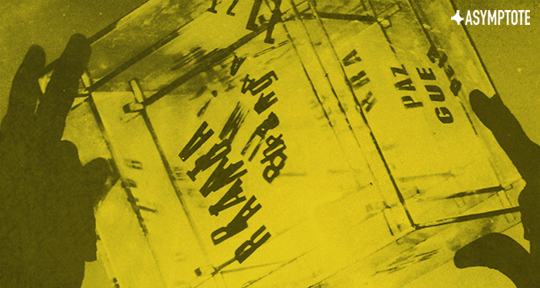Sauntering Verse, a new app for auto-generated poetry, uses Dadaist language to redefine the experience of physical space. In this essay, Lara Norgaard tests the app while reflecting on its implications for our relationship with technology, and the art that it creates. What contexts do we bring to the art we create and consume? What does it mean to be an artist when art is made possible just by taking your phone on a walk?
It is warm and cloudy on the afternoon following the first round of Brazil’s presidential election. The extreme right-wing candidate Jair Bolsonaro received just over 46% of the popular vote—he would come to win the run-off election just weeks later. It feels like the world I woke up to earlier that morning was not precisely my own, as if a body-snatcher stole my world instead of my skin.
The day is a blur: I walk a few meters from the living room to the kitchen in my apartment. Outside the window, the skyline of nearly identical high-rises in the Brazilian city that I call home glint in clouded sadness, weighed down by more than 186 thousand people who voted for a man whom The New Yorker has called a cross between Donald Trump and Rodrigo Duterte. Perhaps he will not win in the second round, but perhaps what is already bad will get worse. This eventuality feels so surreal that I focus on boiling water for a calming mug of coffee. I glance down at my phone. It wrote me a poem:
She skipped it
A rear Jesus
They of them
The sagging can retract or sagging sagging
A quirky staging
She pots him


